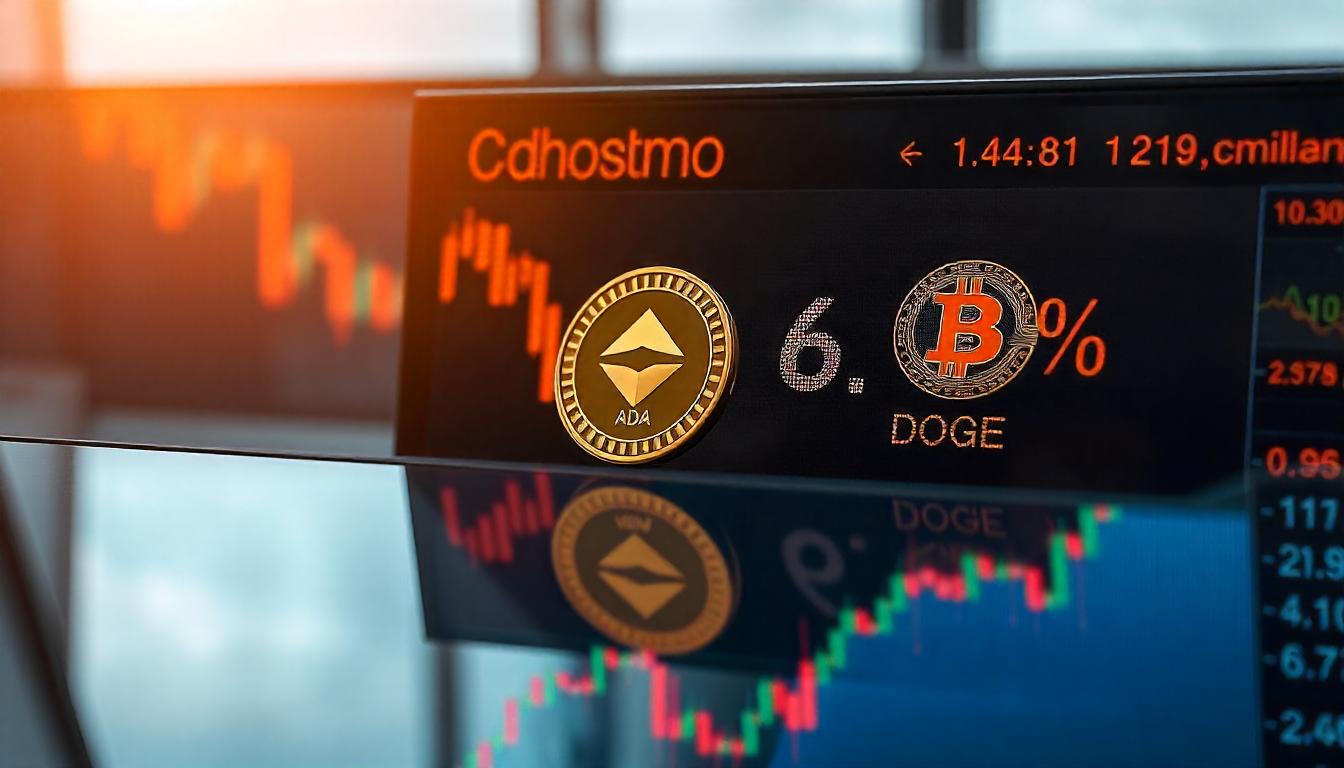Cardano (ADA) and Dogecoin (DOGE) Dip 4% as Traders Await U.S. Payroll Data
Cardano (ADA) and Dogecoin (DOGE) experienced a 4% drop in the last 24 hours, leading the losses among major cryptocurrencies as traders hold off on further market positioning ahead of the U.S. payrolls report.
Bitcoin (BTC) traded around $97,300 during the European morning hours on Friday, marking a 1.7% decline over the past day. The CoinDesk 20 (CD20), an index of the largest liquid tokens by market capitalization, fell by 2.3%.
“Bitcoin failed to break through the $99K resistance level overnight, triggering a broad market selloff and pushing BTC down to a new daily low of $95.6K,” noted QCP Capital, a Singapore-based trading firm, in a Telegram message. “With a three-day losing streak, the crypto outlook remains uncertain.”
Ether (ETH) dropped by 2%, while XRP showed resilience, falling only 1.1% after a brief sell-off on Thursday. Solana’s SOL, however, gained 0.2% as investment firm VanEck predicted the token could reach $520 by the end of 2025.
Traders are bracing for continued market volatility next week.
“It’s been a volatile week, especially with China showing it can take measures against new tariff policies,” said Jeff Mei, COO of BTSE, in a Telegram message to CoinDesk. “They have a broad range of tools at their disposal to exert leverage.”
Mei also highlighted the potential impact of tariffs from former President Trump, which could affect the EU, Canada, Mexico, and China. “With the Trump tariffs yet to fully hit the EU, markets will likely experience continued fluctuations over the next few weeks,” Mei added.
The U.S. Non-Farm Payrolls (NFP) report, due to be released shortly, is a key economic indicator that tracks job creation, the unemployment rate, and wage changes. This data influences market expectations regarding Federal Reserve interest rate decisions.
Strong job growth could spark fears of inflation, potentially leading to higher interest rates, while weak payrolls data might signal an economic slowdown, reducing rate hike expectations and impacting bond yields and currencies.
Bitcoin’s price often responds to these economic shifts, reacting to changes in risk sentiment, liquidity, and the value of the U.S. dollar. Positive payroll data could boost Bitcoin — and the broader crypto market — if it leads to a risk-on market mood, while negative data might have the opposite effect.












